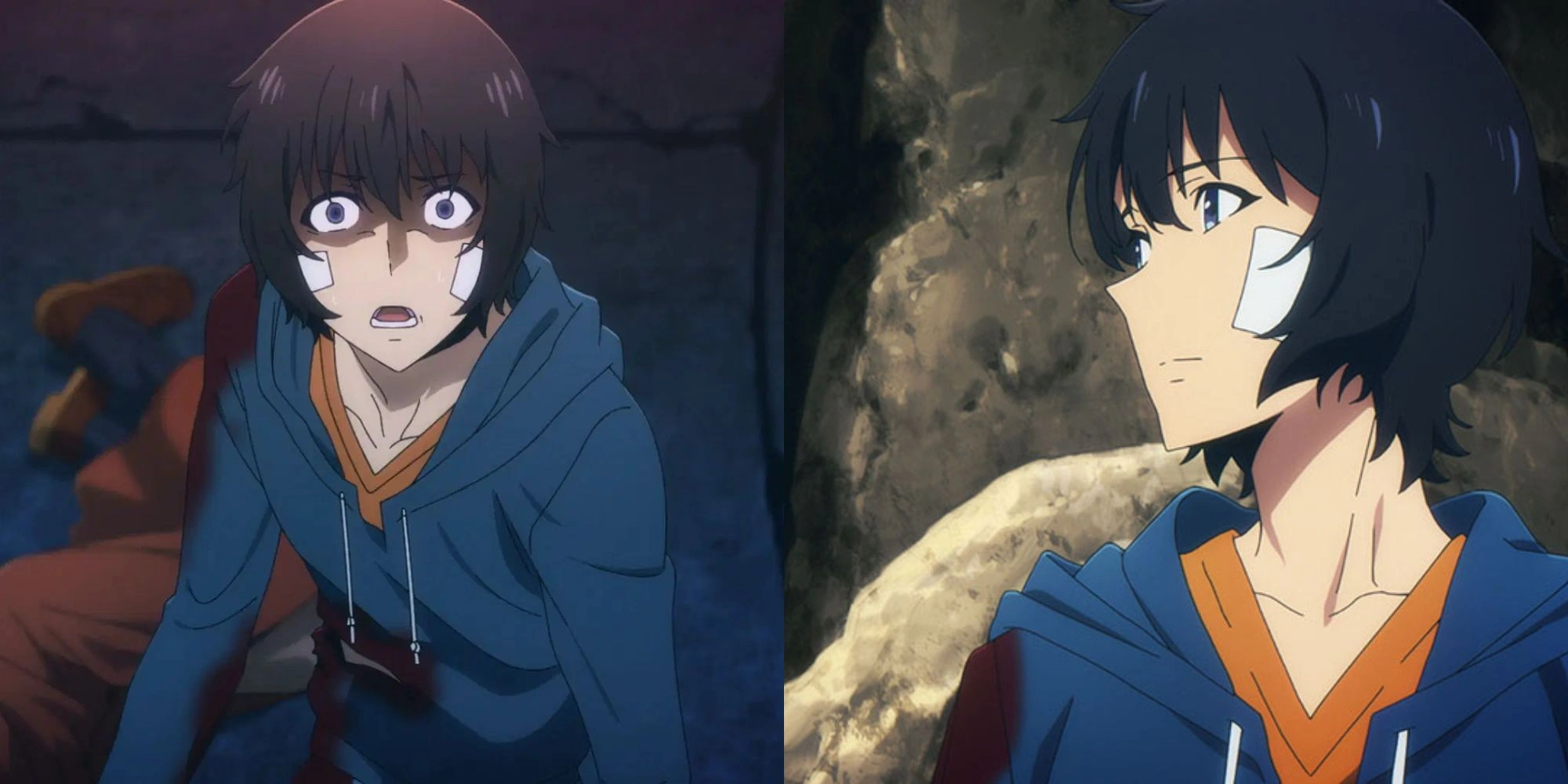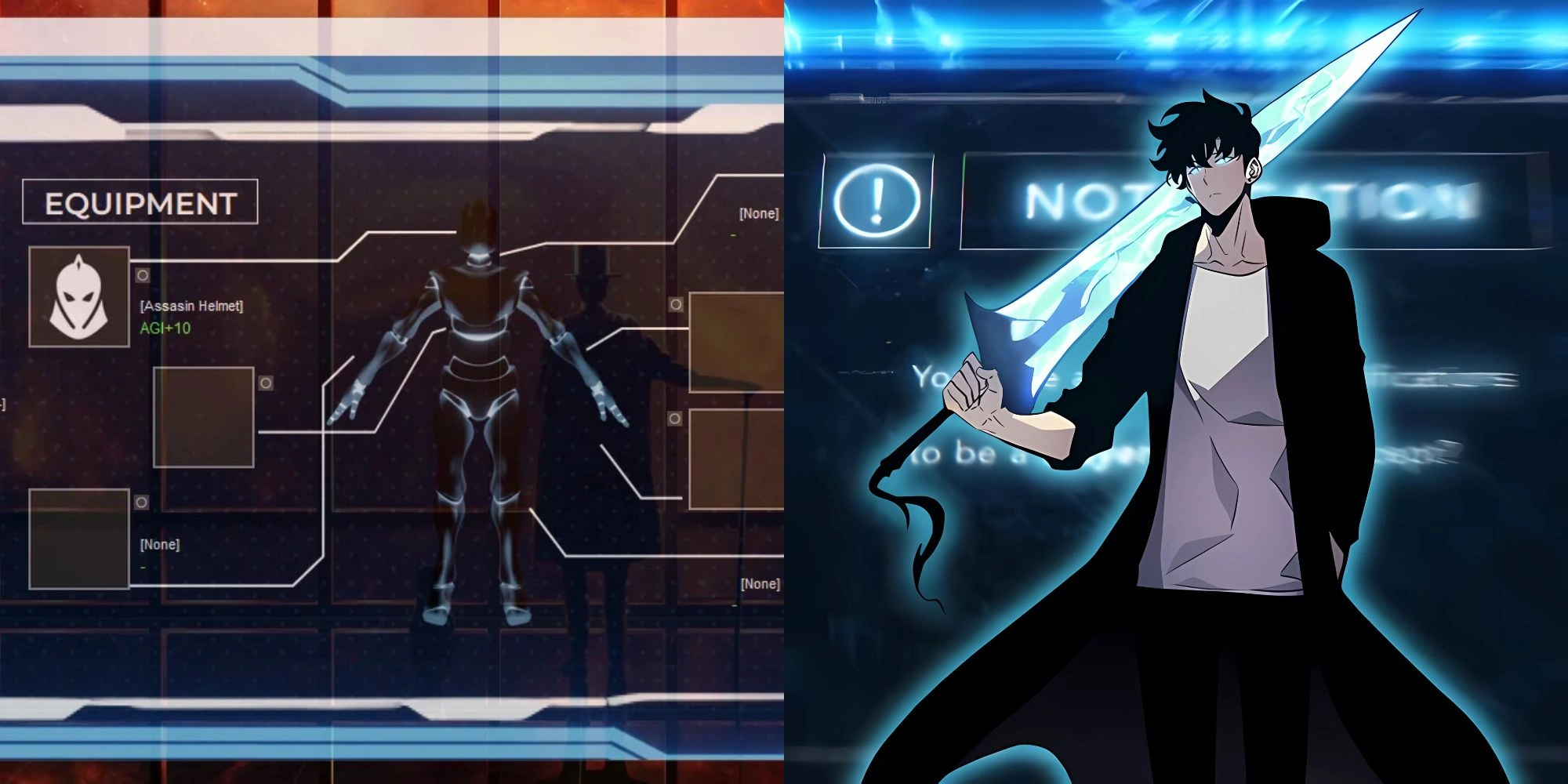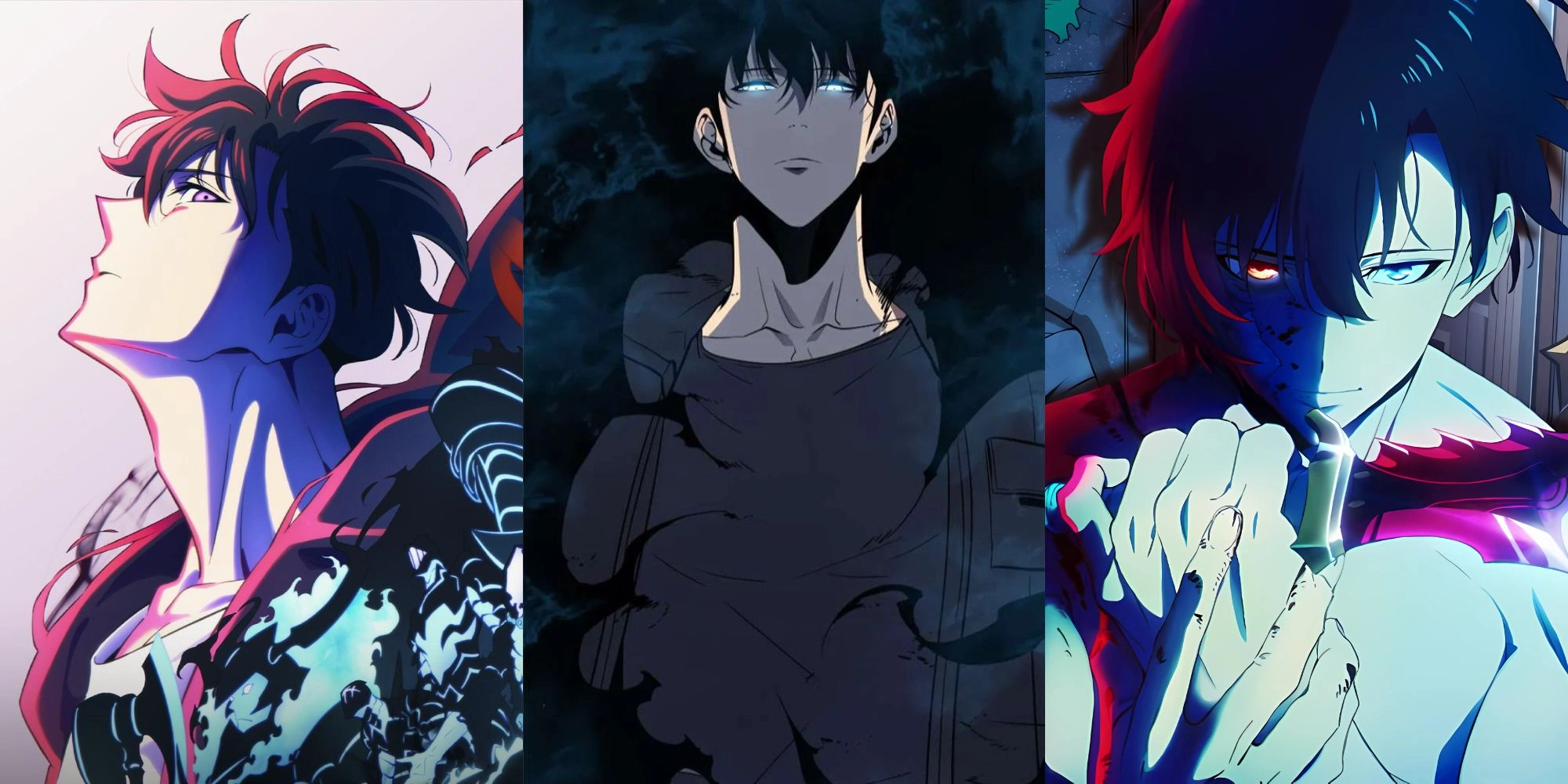If you’ve ever tried explaining Solo Leveling to a friend and ended up saying, “It’s kind of like a game world, but not exactly an isekai…” — you’re not alone.
The truth is, Solo Leveling doesn’t sit neatly in just one genre. It blends elements from several categories, creating something that feels familiar yet distinctly unique. So, what is Solo Leveling called? What genre does it actually belong to?
Let’s break it down.
The Short Answer
Solo Leveling is best described as a:
Dark Fantasy Power Fantasy LitRPG, specifically falling into subgenres like Hunter/Gate Fantasy and System Apocalypse.
That’s a mouthful — but it’s the most accurate way to describe what the series really is. Let’s unpack each piece.
🎮 It’s a LitRPG (Literary Role Playing Game)

Early in the story, Jinwoo joins low-level raids just to survive.
At the heart of Solo Leveling is a system that feels like it came straight out of an RPG:
- Jinwoo levels up by gaining XP
- He gets skill trees, stat screens, and inventory slots
- Quests, penalties, item drops — it’s all there
This makes Solo Leveling a textbook LitRPG — a genre where characters actively interact with game mechanics that are visible and central to the story.
Unlike typical fantasy stories where magic just exists, here, everything is quantified and tracked — and the main character knows it. That’s what separates a LitRPG from just “fantasy with game vibes.”
💀 It’s Also a Dark Fantasy
This ain’t your cheerful swords-and-sorcery tale.
- Monsters rip humans apart
- Dungeon breaks threaten global extinction
- Hunters die brutally — often for cash
The setting is grim, survival is brutal, and there’s a constant undertone of fear. Jinwoo’s power comes at a cost, and he carries the psychological weight of his rise.
That’s classic Dark Fantasy energy — where violence is real, hope is rare, and power doesn’t come without sacrifice.
💪 It’s a Power Fantasy (But Earned)
Let’s be real: Solo Leveling is pure power fantasy — and that’s not a bad thing.
You watch the weakest guy in the room go from being ignored to becoming the strongest force in the world. That’s wish fulfillment 101 — and the series owns it.
But what makes it feel good is that Jinwoo earns that power:
- He suffers through painful quests
- He literally dies and comes back
- His rise feels built, not just handed to him
It’s satisfying because we see the grind — and that’s what makes a good power fantasy work.
It’s Set in a Hunter/Gate Fantasy World
This is where things get really interesting.
Solo Leveling popularized what many now call Hunter Fantasy or Gate Fantasy:
- A modern world disrupted by interdimensional Gates
- Humans awaken powers and become Hunters
- The world forms guilds, ranking systems, and markets around this chaos
It’s not traditional isekai, because the main character doesn’t go to another world — instead, the other world invades ours. Think of it like reverse-isekai meets dungeon crawler.
Or More Specifically: System Apocalypse

The System grants Jinwoo RPG-style powers and lets him grow stronger indefinitely.
A more precise subgenre label used in LitRPG communities is System Apocalypse.
That means:
- The world is suddenly overlaid with game-like mechanics
- Society either collapses or reshapes to survive under the new rules
- Protagonists must adapt, level up, and fight to live
In Solo Leveling, this manifests through the Gates, the ranking system, and most of all — The System that gives Jinwoo his powers. While the world doesn’t collapse completely, it’s definitely transformed.
So… What Is Solo Leveling Called?
Here’s the best one-line answer:
Solo Leveling is a Dark Fantasy Power Fantasy LitRPG, set in a Hunter/Gate world shaped by a System Apocalypse.
It’s not just “Action” or “Fantasy.” It’s a genre fusion — and that’s what made it iconic.
It didn’t just follow a trend — it created one.
🧠 FAQ: What Genre Is Solo Leveling?
What is the Solo Leveling genre called?
Solo Leveling belongs to multiple overlapping genres, but the most accurate classification is Dark Fantasy LitRPG Power Fantasy, with subgenre ties to Hunter/Gate Fantasy and System Apocalypse. It blends RPG mechanics (levels, stats, quests), a gritty and violent setting, and a classic weak-to-strong power arc to create its signature tone.
Is Solo Leveling considered a LitRPG?
Yes. Solo Leveling is widely recognized as a LitRPG (Literary Role Playing Game) because its protagonist, Jinwoo, interacts directly with game mechanics like leveling up, allocating stat points, completing quests, and acquiring skills through a visible system. These mechanics are central to the plot and not just for flavor.
Is Solo Leveling an isekai anime?
No, not in the traditional sense. Solo Leveling takes place primarily in the real world (modern-day Korea), which is invaded by magical dungeons through “Gates.” Unlike traditional isekai, the protagonist isn’t transported to another world — the fantasy elements come into his world. This setup is sometimes called Portal Fantasy or Reverse Isekai.
Is Solo Leveling a power fantasy?
Absolutely. Solo Leveling is a textbook Power Fantasy, following Sung Jinwoo as he rises from the weakest hunter alive to one of the most powerful beings in existence. The appeal lies in watching him gain power, respect, and dominance through constant leveling and system upgrades. However, the story adds weight with darker elements and real consequences.
What is Hunter or Gate Fantasy?
Hunter/Gate Fantasy is an emerging subgenre popularized by Korean web novels like Solo Leveling. It typically features a real-world setting disrupted by dimensional gates (portals) filled with monsters. Humans awaken powers, form guilds, and take on the role of Hunters to clear dungeons and survive in this new world structure. It’s often paired with LitRPG systems and power scaling.
